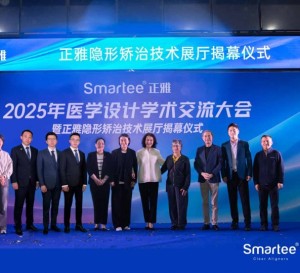
Inflation? It Will Be a Persistent Threat
The major themes influencing the economic landscape, from short to long term, are: price spiral and recession; digitalization and (de)globalization; climate transition and convergence between the North and South of the world. Here’s what Michael Spence, Joseph Stiglitz, and George A. Akerlof (Nobel Prize winners in Economics in 2001) think about these issues.
Regarding the possibility of avoiding a recession in the USA and Europe: "If the monetary authorities overdo it, we will certainly have a recession. To be honest, sentiment varies continuously. However, I think there is one important thing to say: markets are clearly making a bet that the battle against inflation will be tough, but once it’s over, we will return to the world we knew before. At that point, central banks will begin to drastically reduce interest rates and so on. No one knows for sure how things will turn out, but honestly, I don’t think that’s what will happen. I think we will live in a world where inflation is a persistent threat, where capital costs will be higher. And that the equilibrium interest rates after the fight against inflation will essentially be higher."
On the combined effect of digitalization, energy transition, and the ongoing de-globalization process on the economy: "The digital revolution influences productivity: it is undoubtedly deflationary. Consider ChatGPT by OpenAI, which can write software, at least pieces of software, and this is just a small example of the impact it can have in terms of increasing productivity. Regarding fragmentation and de-globalization, this is clearly an inflationary force. It is an important part of the reason why the global economy is not behaving like it has over the past 40 years. If we examine the relationship between inflation and climate transition, however, we find it is a bit more complex. On one hand, there is the need to mobilize enormous capital to transform our energy systems: estimates exceed 3 trillion dollars a year. This is an additional aggregate demand that could certainly increase inflationary pressure. However, there are other dimensions of the sustainability agenda that are not inflationary or may even move in the opposite direction: for example, energy efficiency, which essentially means running our economy with a much lower level of energy demand, regardless of whether it is green or fossil fuel: this is deflationary, right? Conversely, smart grids, which are part of the energy efficiency story, move in the opposite direction. The story of inflation in relation to sustainability, in short, is a bit more complicated than the other two mentioned. Summarizing is really difficult. If I had to, I would say that inflationary forces will dominate in the short and medium term, while deflationary forces will take longer to come into play."
On the surprising factors when considering the convergence of developing economies towards developed countries: "There are many things... I am still quite optimistic about the convergence process, partly because emerging economies, at least most of them, are much more resilient than before. They are middle-income countries, have more resources, and responded to the pandemic quite well. The biggest aspect we did not foresee, in relation to economic progress and the prospects of widespread well-being practically everywhere in the world, is undoubtedly the scale and depth of the digital revolution. There is another thing we did not foresee. We took for granted that the basic features of the multilateral trading system, which enabled such broad growth in the developing world, would last. Therefore, we did not foresee the degree of fragmentation of tensions, sometimes referred to as partial globalization, that we are witnessing. This is a very worrying development. I still think convergence is likely, but the exception, in my opinion, is represented by low-income countries. This is important for Europe because many of them are just south of the Old Continent. And the reason I am concerned is that, besides the usual challenges to face, such as governance and the need to ensure sufficiently high levels of investment, these countries have extremely high fertility rates and demographic profiles, which are very difficult to manage, even with powerful growth models. Added to this is the pandemic, which has been a hard blow, not only from a medical-health perspective but also in terms of fiscal resources committed. And then there are the climate shocks that are hitting them again, and which they have to face with much more limited resources compared to richer, middle-high-income, or developed countries. All this starts to look like a perfect storm. So, I think there is a lot of work to be done to ensure that these countries do not drift away and do not put themselves in a position where they cannot participate in the convergence process."
 Related articles
Related articles
Four words and four people from history can help investors navigate the uncertainty of financial markets while managing their emotions. We are currently in the midst of a storm caused by rising...
We find ourselves in a new financial world where the same old basic rules apply and where investors' reactions are always the same.
According to a news release, this new program is in addition to the discount benefits that Mari’s List members receive on uLab products.
The company also outlined a renewed focus on raising business awareness for its clients, designed by its team and key speakers.
Editorials 16 December 2022
The high cost of living return to levels not seen since the early 1980s is scaring everyone a bit.
 Read more
Read more
Digital Dentistry 19 November 2025
Increasing awareness of tooth fracture, both complete and incomplete, as a significant disease entity has led to improved diagnostic techniques.
Editorials 19 November 2025
As Ellen Simmons-Shamrell of the Class of 1977 wrote her annual check for the Michael D. Scotti, DMD Endowed Scholarship—established in memory of her late classmate—she reflected on how different...
Products 19 November 2025
Smartee Denti-Technology has unveiled the Smartee Digital Orthodontic Technology Exhibition Hall, a 1,200-square-meter space dedicated to showcasing the company’s innovations in clear aligner...
News 19 November 2025
Coupa, the global leader in AI-powered spend management, today announced a new collaboration with Specialized Dental Partners, a premier dental support organization (DSO) dedicated to enabling its...
News 19 November 2025
Breakthrough T1D has been selected as a 2025 Health Access Hero Award grant recipient by Sun Life U.S. and DentaQuest.















